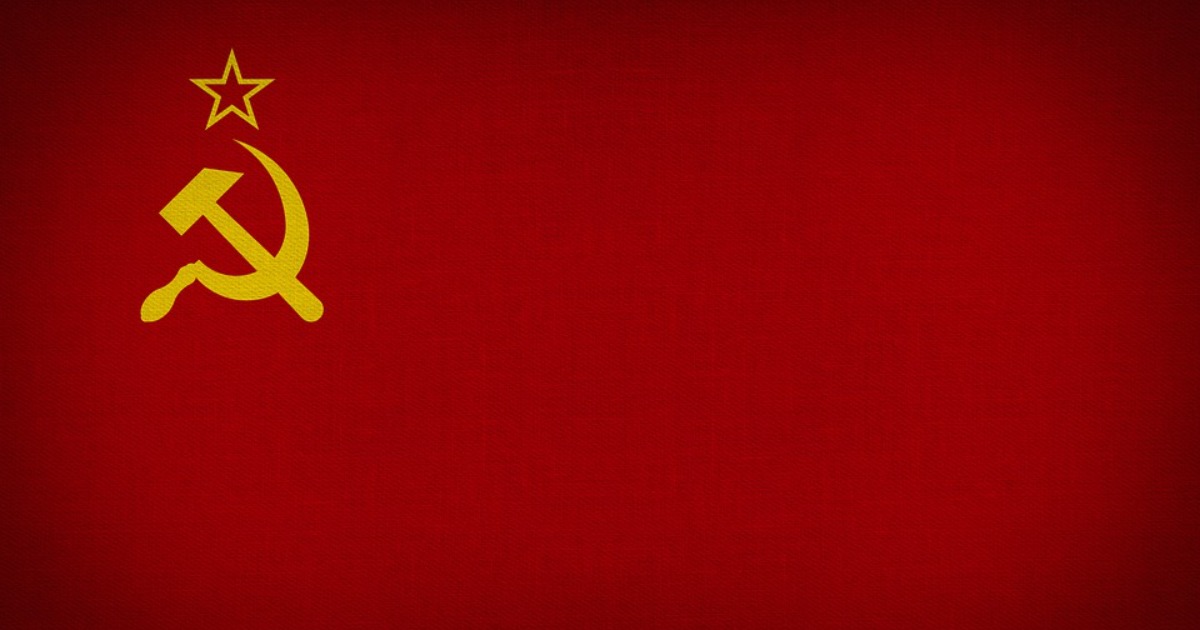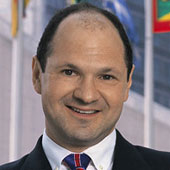(In)Famous Western Alliances with the Soviet Union/Russia
Soviet Communists and the Nazis collaborated in the 1930s. Why on earth is Trump’s America now pursuing another shameful alliance with an utterly anti-liberal force?
December 21, 2019

History is full of examples of what are widely considered polar opposites politically on occasion converging. The most famous (or rather infamous) example in modern history is an alliance formed by the Communist government of the Soviet Union and the Nazi government of Germany.
The case of the Soviet-Third Reich alliance
For all their ideological differences, the two regimes were actually twins in many respects. Both were intent on building an ideal society — one based on class and the other on race. They were also determined to exterminate those who didn’t fit the ideological mold, and both relied on the secret police and concentration camps to achieve that purpose.
Both were led by leaders who defined what was the “national” ideology as total obedience to themselves personally and adoration from their subjects.
In fact, both Stalin and Hitler expressed a grudging admiration for each other. And, since imitation is the highest form of flattery, soon after the conclusion of WWII Stalin followed in Hitler’s footsteps and unleashed a brutal anti-Semitic witch hunt disguised as a campaign against “rootless cosmopolitanism.”
It was not entirely surprising, then, that, after vilifying each other throughout the 1930s, in 1939 they concluded the infamous Molotov-Ribbentrop Pact (named after the two countries’ foreign ministers) and proceeded to dismember Poland.
When liberal democracy hollows out itself
Liberal democracy, on the other hand, was consistently inured to the charms of communism. After the end of World War II, the United States as the leader of the Free World naturally took upon itself the leading role in opposing the totalitarian regime in Russia and countered the pervasive Soviet propaganda which spearheaded Russian expansionism.
Moscow proved successful in drawing some political leaders in some Western European countries into its political and ideological orbit. Strong communist parties existed in France and Italy, and in the UK the left wing of the Labour Party was quite pro-Russian.
Considering the Soviet Union’s dismal human rights record at home, which at that time was no longer a secret to anyone, the fact that so many European voters supported communist parties represented quite an achievement on the part of Moscow propaganda.
Remember the US as an anti-Communist bulwark?
The United States did not fall for such foibles. This was especially true for the Republican Party, which gathered in its ranks the staunchest opponents of Communist Russia.
Its leading members were consistent in their opposition to concessions to Moscow and insisted on U.S. military strength. In fact, they attacked the Democrats for being “too soft on Russia.”
This was at least somewhat ironic, given that it was a Democrat, John Kennedy, who stood up to Khrushchev on Cuban missiles and another Democrat, Lyndon Johnson, who sent troops to fight Moscow-backed forces in Vietnam.
America’s industrial trade unions, led by the AFL-CIO, which at the time was the backbone of Democratic support, were among the staunchest opponents of communism — even though Moscow still insisted that it was the Motherland of all workers.
Still, it was a Republican, Ronald Reagan, who dealt a mortal blow to the Soviet Union. Until very recently, Reagan had been venerated in the GOP, in large part because he defeated what he had deemed the “Evil Empire.”
Loving Russia: Trump’s new American exceptionalism
This history of the Republican Party makes it all the more astonishing that over 90% of registered Republicans now support Donald Trump, even though the man has repeatedly expressed admiration for Russia’s Vladimir Putin.
The current U.S. President, moreover, was Russia’s favorite in the 2016 presidential election. Plus, his campaign operation and various people in his orbit had enough contacts with Russian operatives to provide at least circumstantial evidence of a conspiracy.
As if that weren’t bad enough, as Trump faces impeachment, the Republican Party has now thrown all pretense overboard. Its senior politicians are parroting a Russian canard about Ukraine interfering with the 2016 vote, dismissing out of hand the hard evidence provided by U.S. national security agencies.
Far more troubling, 46% of active members of the U.S. military, a long-time Republican voter base and traditionally very anti-Russian, now consider Russia an ally.
It seems as if their love for their commander-in-chief goes a little bit too far. Whatever their motivation, at a recent Army-Navy football game, which Trump attended, a number of white cadets and midshipmen flashed white supremacy signs on national television — over the heads of their Black comrades.
True, Russia is no longer communist or militantly atheist. There is free enterprise and new churches are being built. However, in many other respects the system that Putin has built is merely a light version of communism — it is a kleptocratic, nationalistic and repressive neo-Soviet system.
Actually, it is not really “neo” either. For all their church-going piety and plundered billion-dollar fortunes, high-ranking Russian government officials, almost to a man, are former members of the Communist Party of the Soviet Union. Many were also high-ranking officers in the KGB, the blood-soaked Soviet secret police.
As has been made clear in the context of the recent local elections, Russia still persecutes its citizens when they dare to have their own opinion or come out to protest peacefully. Its state-owned media is saturated by propaganda. In true Communist fashion, the West and liberal democracy are still portrayed as the number one enemy.
Republicans: Amazing turncoats
Against that backdrop, it is all the more astounding that the Republicans, almost to a man (yes, they are mostly men), have become such patsies for Russia. They have gone soft not because Russia changed for the better, but because the Republican Party changed for the worse.
The reason why it is happening is that since the 1980s, the GOP has been under pressure from its rich donors to move further and further to the right and away from liberal democracy. It has become beholden to right-wing billionaires, men like the Koch brothers.
Hence, on economic and social issues, domestic policies that were once advocated by Ronald Reagan would now be considered Democratic rather than Republican. And the domestic policy mindset of a Republican stalwart like Richard Nixon was in fact very close to what is now advocated by the likes of Bernie Sanders and Elizabeth Warren and other presumed “socialists.”
Profound illiberalism: The Republicans’ source of philo-Russian thinking
In order to make sense of all that, it is pivotal to recognize one key point: Long before the arrival of Trump onto America’s political scene, the GOP had stopped being conservative in everything but name — and had become a party of right-wing extremism, and thus an enemy of liberal democracy.
There is a paradox at the core of today’s Republicanism: While its base is stridently extremist, its donor class and most of the Party leaders no longer care about ideology. To them, as to the current crew in charge of Russia, it’s all about tapping into the money streams the country will yield.
This conditioning is what made the Republican base ripe for hero-worship when Donald Trump came along — while the smart men behind the development of the Trump cult effectively pick their pockets. Like Putin’s cronies, money is Trump’s one and only god.
And this, in the end, is also what put the Republicans on track to be ready to strike an alliance with Putin. He is their ideological brother insofar as enriching themselves by stealing their country’s assets is the only credo of Russia’s new elites.
It is thus self-interest – and not just, as is often assumed, a blind willingness to follow Trump – that creates this spellbinding alliance between the U.S. Republicans and Russia’s neo-Communist crew.
Conclusion
Sad though it is, Putin’s Russia and Trump’s GOP are suited for one another as much as, in a different historical context (and certainly still on a far deeper level of evil) Nazi Germany and Soviet Russia were in 1939.
Takeaways
History is full of examples of what are widely considered polar opposites politically on occasion converging – like the Soviet Union and Nazi Germany.
Putin’s Russia and Trump’s GOP are suited for one another as much as, in a different historical context, Nazi Germany and Soviet Russia were in 1939.
Russia is no longer communist. However, the system that Putin has built is merely a light version of communism -- it is kleptocratic, nationalistic and repressive.
Putin is the Republicans’ ideological brother -- insofar as enriching themselves by stealing their country’s assets is the only credo of Russia’s new elites.
The Republicans have become patsies for Russia. They have gone soft not because Russia changed for the better, but because the Republican Party changed for the worse.
Long before Trump, the GOP had stopped being conservative in everything but name — and had become a party of right-wing extremism and an enemy of liberal democracy.

